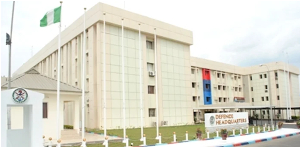Half Assini, May 16, GNA - The livelihood of people in the Jomoro District in the Western Region could be severely affected if water hyacinth and Vortia, also known as water lecture, are not removed from the Abbey Lagoon.
Already, movement of the people on the lagoon is becoming impossibility due to the rapidly expanding water hyacinth and weeds. The community's access to the outside world is only through the use of boats and canoes.
Women and children, who rely heavily on the river, cannot move freely to conduct their businesses and children's education is under threat. The present biological approach being used to control the spread of the hyacinth had proved to be ineffective and unable to cope with the rate of multiplication of the weeds.
Dr Kingsley M. Aryee, the District Director of Agriculture, told the GNA in an interview on Tuesday that the ministry, the Environmental Protection Agency (EPA), the Water Research Institute (WRI) and the Jomoro District Assembly were using specially bred insects to control the weeds. These insects feed on the hyacinth and destroy them but other riverweeds such as Vortia have also surfaced and made movement along the river difficult.
Dr. Aryee said the manual removal of the hyacinth was expensive as compared to the biological technique and called for more biological insects to assist them fight the hyacinth "Though we breed some of the insects, their multiplication rate is slow. Any further multiplication in the water hyacinth will prevent boat movement and water travel along the Jewi Wharf and Flambo, Adjaike and Chepu in Cote D'Ivoire."
Dr. Aryee said joint vaccination exercises between communities living along the lagoon in both Ghana and Cote d'Ivoire would be affected while trading activities, revenue generation for the assembly and the fishing industry would also be affected.
Mr. Kofi Eshun, a Natural Resource Manager of the EPA, said the presence of the weeds in the Abbey Lagoon needed urgent attention. "Marine life can be severely threatened if urgent action is not taken to reverse the expanding hyacinth and weeds."
Mr. Eshun said though the Volta River has a large amount of water hyacinth, the assembly and other stakeholders have started converting them into compost and using them in farms in the Volta Region. He said under the Integrated Management of Invasive Aquatic Weeds (IMIAW) project, which will start soon, the hyacinth and other weeds would be harvested and turned into compost for use by farmers. Mr. Eshun said some communities would be trained and provided with the resources and materials to implement the project to ensure its success.
Mr. Eshun said since communities along the lagoon are predominantly fishermen, efforts must be made to train them in the collection, treatment and composting, to enable them meet specifications. He said people of Esukrom, New Town and Jewi Wharf in the Jomoro District would benefit from the pilot (IMIAW) project when it takes off. The EPA hopes to train 150 farmers in hyacinth other aquatic weed harvesting and composting to safeguard the marine life in the Abbey Lagoon and other lakes while facilitating water transport.
Mr. Eshun said most of the communities have expressed their willingness to assist the project to safeguard their livelihood. The beneficiary communities have requested for outboard motors, Wellington boats and other equipment to begin the project but it cannot take off because funds have not been released. 16 May 07
Regional News of Wednesday, 16 May 2007
Source: GNA












